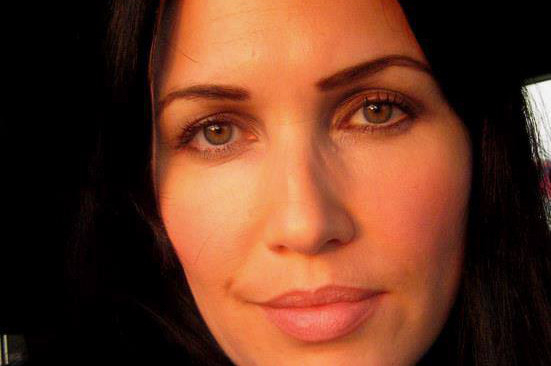
It’s a common fantasy: throwing off the shackles of your nine-to-five (or worse, the eight-to-six) job and embracing freedom by working for yourself. However, according to business reports, this dream is becoming a reality in the UAE with an unprecedented number of employees turning to freelancing.
Far from being termed illegal, the country is embracing this economic niche, making easy provisions for freelance work permits with accompanying visa in free zones such as Media City in Dubai, twofour54 in Abu Dhabi and Fujairah Creative City. The package cost is about Dh20,000, but varies between free zones.
There is no doubt that the scene is booming. Nabbesh, a website for freelancers in the UAE, saw memberships double in less than two years — from 30,000 in 2013 to 73,693 in 2014. And the trend continued this year. But aside from the perceived freedom, why are people moving away from the security of a salaried job with an established company to strike out alone? UAE-based freelancers tell us why.
Emer O’Doherty
The Irish national is a freelance content writer who specialises in copywriting.
“I had been working in the communications industry in my home country. However, on moving to the Middle East, I saw an opportunity to broaden my areas of focus to the Gulf and delve into new industries.
“I moved to Oman, baby in tow thanks to my husband’s career and was very much the trailing spouse. However, I wanted to use the time to develop my talents in a new environment and got involved with writing voluntarily for various non-profit organisations, before expanding into freelance work.
“I was writing mainly for advertising agencies in Oman where my clients hail from the banking industry, utility sector, auto industry and high-end luxury brands arena, and every client I have worked with has an interesting story to tell.
“My husband relocated to Dubai a year back, but I was able to continue with my freelance work, making the necessary adjustments to settle my children into new schools and life in a new city.
“Working as a freelancer has its merits. I was able to set my own hours and work from home with only limited time spent in office spaces or at meetings. And I was able to fit all this around my children.
“The downside? Working in isolation, you miss the rush of adrenaline that comes from working with a team who are all working towards a common goal.
Priyanka Wade
The Indian expat is a freelance writer, specialising in property.
“The first ten years of my life in Dubai were spent working as a full-time banker. As much as I enjoyed my job, the demands of a family took over as soon as I had my baby. After giving up my banking career, I knew I wanted to do something productive with my time, along with looking after the baby. Writing had always been one of my unexplored passions. That’s how I got into freelancing.
“It is great for me because for starters I have complete control over my time. My child is still priority; however, since she goes to school now, I have a lot more time in the first half of the day to focus on my writing. Secondly, by virtue of the research that I do, writing exposes me to a lot of knowledge on a range of subjects, all this while sitting in the comfort of my home.
“The only downside I can think of is the remuneration. However, there is no escaping the fact that job satisfaction is way higher. There are numerous opportunities in freelance writing today. In the absence of a formal degree, with a bit of flair and inclination, a lot can be achieved in this field.
Hisham Wyne
The Pakistani expat is a freelance copywriter, content specialist and professional MC.
“I did the entire gamut — from lecturing for the University of London’s programme in Dubai to going through the public relations agency mill. I was eventually headhunted as a marketing manager for an exhibitions company. All the while, I’d also kept my hand in by doing stories for magazines and writing regularly for the UAE’s dailies as a commentator.
“By the end of 2010, I’d come to a few rather simultaneous realisations. Firstly, that good corporate content was either a bit lacking in the market or handled by global agencies who would charge exorbitantly due to their overheads. Secondly, I felt there was a genuine gap in high-quality content that clients would be willing to pay for. And thirdly, the nine-to-five is an alienating place to be because corporate and personal goals differ. Your company usually isn’t looking out for you. And even if it wants to, corporate objectives diverge from personal goals. And anyone in a nine-to-five needs just one line manager they don’t get along with making work a living hell.
“For me, going freelance has been a brilliant journey. There’s the fierce joy of genuinely creating value through content that clients are happy to pay for. There’s the ability to structure work and meetings to fit other commitments. It’s not a major emergency if a kid needs a vaccination mid-day, or if a client wants a sudden meeting. Economically, business revenues can be scaled up to meet inflation easier than salaries can. But let no one kid you: it’s not easy. Turning quality content into a viable paying concern is a far cry from writing the odd piece every month. And one has to chase payments, which is a job in itself.
Cindy Wade
The British expat dabbles in music, photography and journalism and is a momager to her DJ son.
“I’ve been a freelancer all my life. Starting in beauty promotions as a teen later led to freelance projects in fashion. I think it’s a personality type that fits in with this mindset. You are not keen to be employed full-time, which is so important for some, and yet still not keen to be a full-blown entrepreneur. I believe freelancers are highly curious and like to explore. They respect companies and brands and want to be associated with them, be involved enough to have a look into a brand’s world or mechanics.
“To be successful one must have enough professionalism and skills to be considered, but then still require the freedom for some me time and varying energy flows of work. I studied for a master’s degree and some other supplemental trainings and still look to carry on this way in order to keep fitting a potential for freelancing.
“When I had children the freelancer in me was reinforced. I have not been a successful mother with a full-time job, but respect those who are. I think only looking after children has a shelf life before you see you are not doing something for yourself. The upside of freelancing is variety, mobility, valuable market knowledge, a range of contacts, and the ability to leave your options open.
“The downside, at least in Dubai is no secret, chasing avoided or late payments. Sometimes it can take a while to get on a roll and strike pay dirt, but with patience you gain momentum and get great regular clients.”
LICENSED TO FREELANCE: WHAT YOU NEED TO KNOW
Although freelancing in the UAE is legal, it is important to distinguish between part-time work and freelancing. The latter denotes working for yourself, which is fine as long as you are licensed to do so.
There are two ways of setting up a business in Dubai and different licence options for both. The first is through the Dubai Department of Economic Development and the second is through one of the many free zones. The big benefit of setting up business through a free zone is that companies (i.e. you as a freelancer) can remain 100 per cent foreign-owned and enjoy tax-free status for 50 years.
Stay-at-home mums can also freelance on their husband’s visa, so long as they obtain a no objection certificate (NOC) from their spouse, as well as a labour card issued from the licensing authority/immigration office of the emirate where the freelance company has been registered.
The majority of licensing authorities require freelancers to have some sort of office space within their jurisdiction, even if it is something as basic as a flexi-desk or a so-called smart office, which is often already built into the price of the company set-up package offered.













